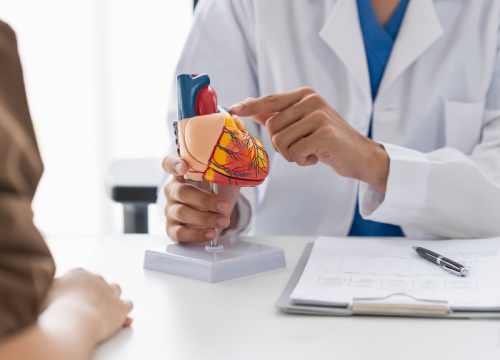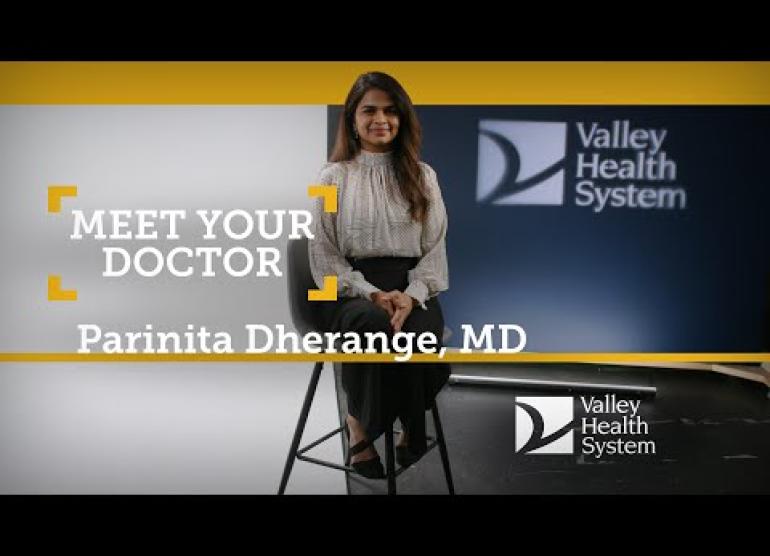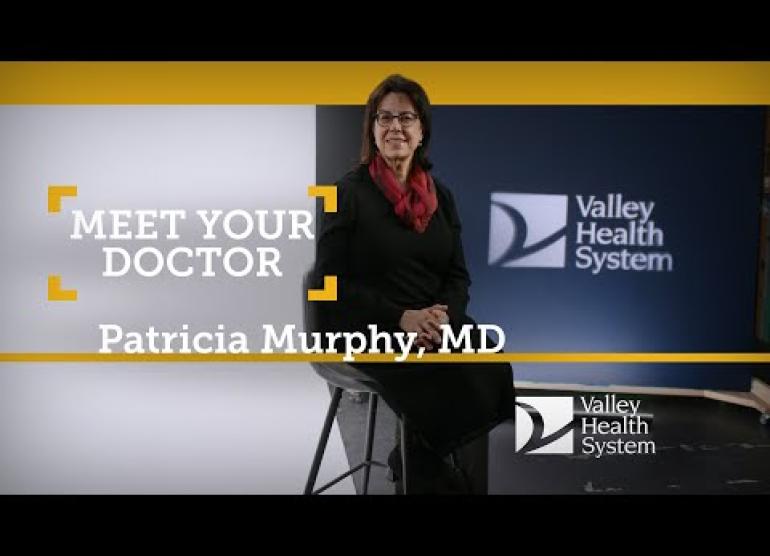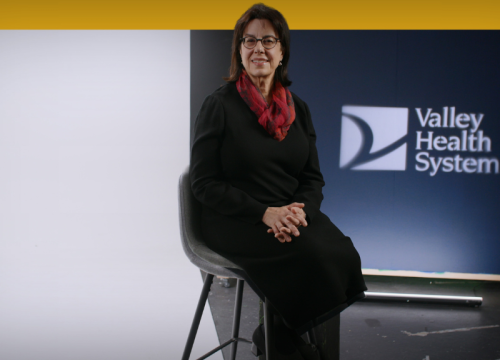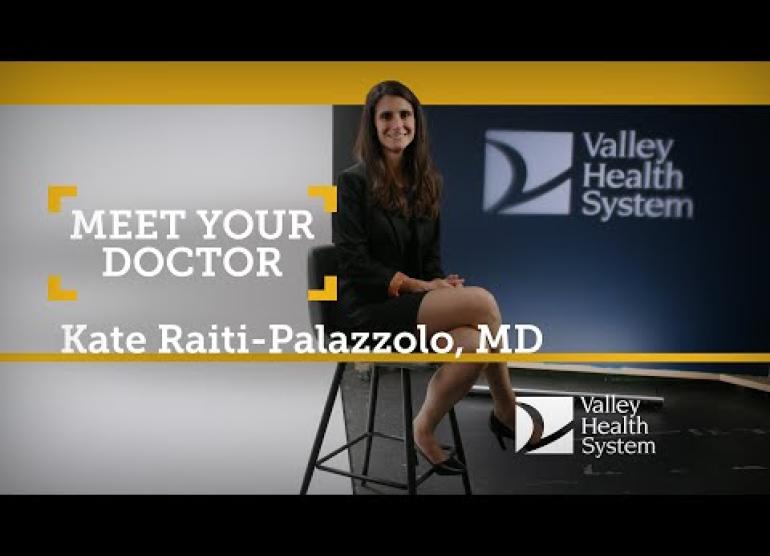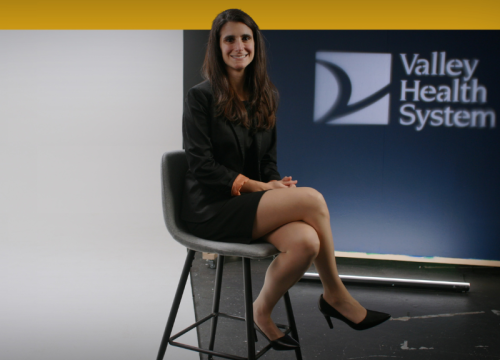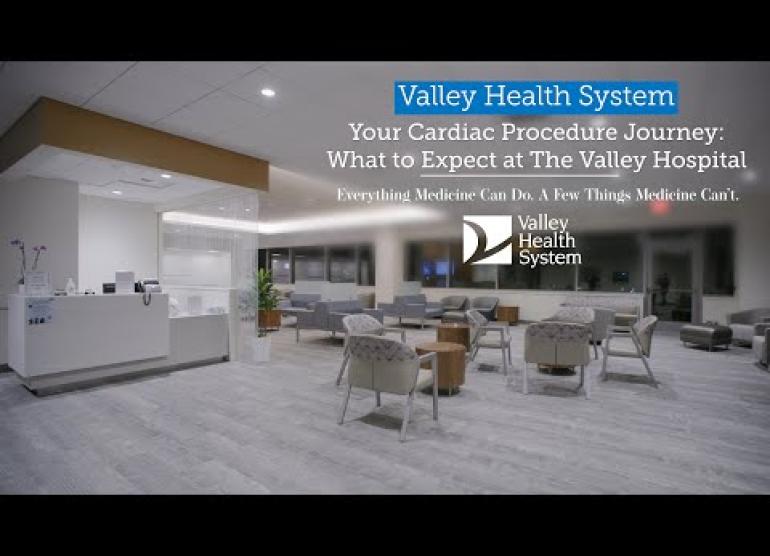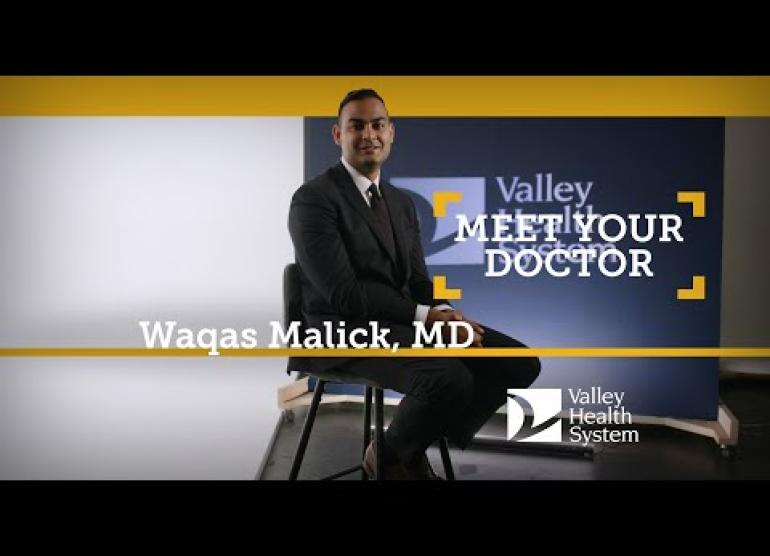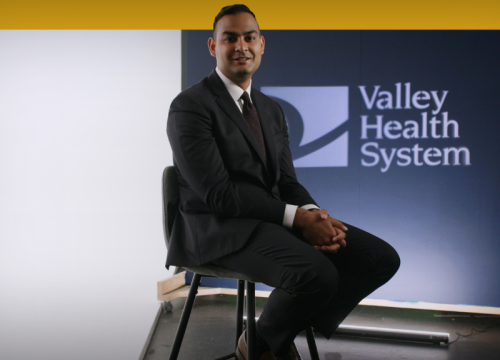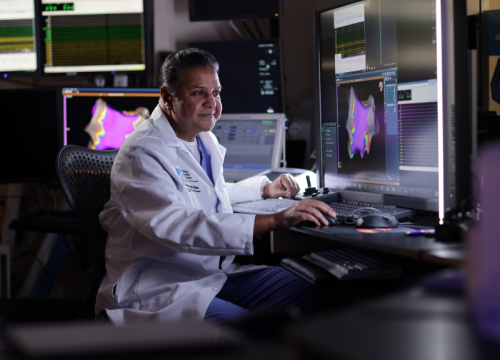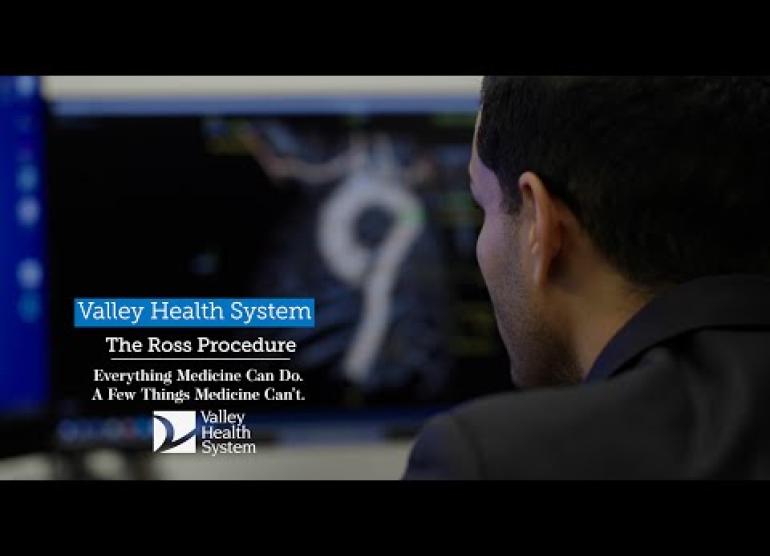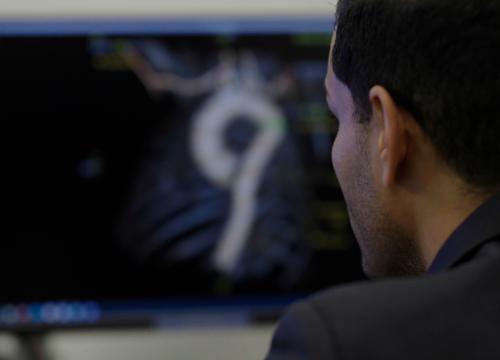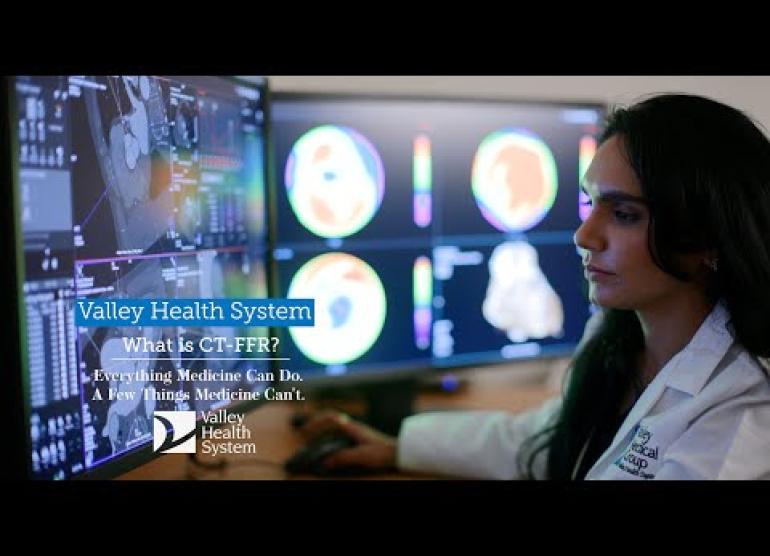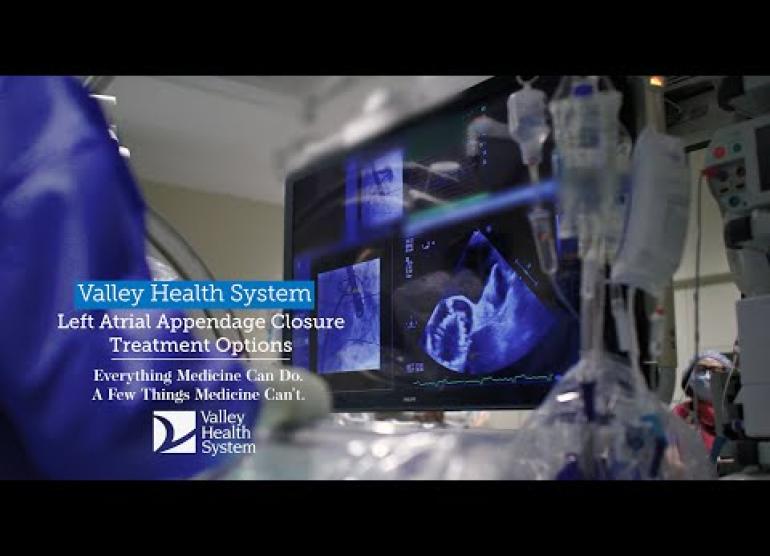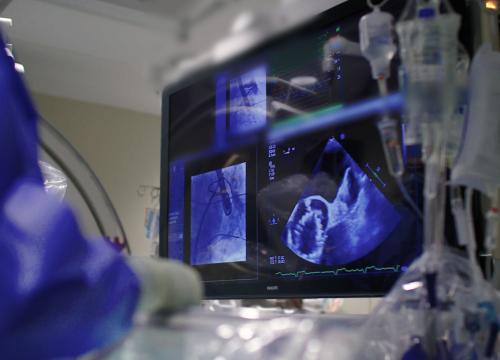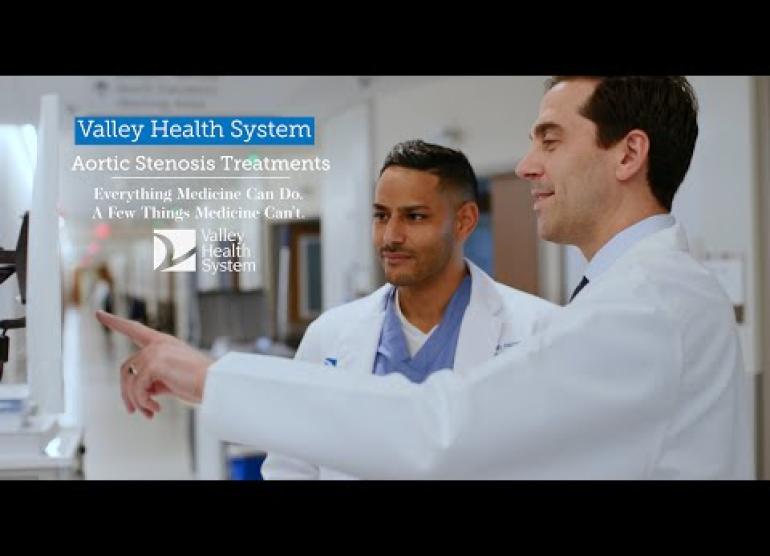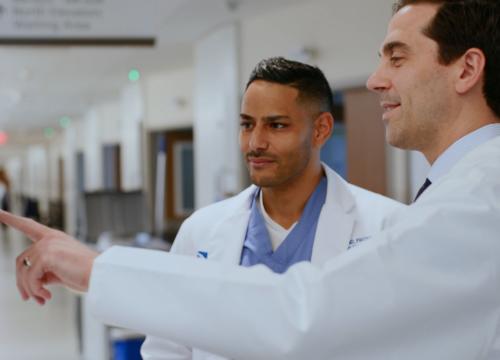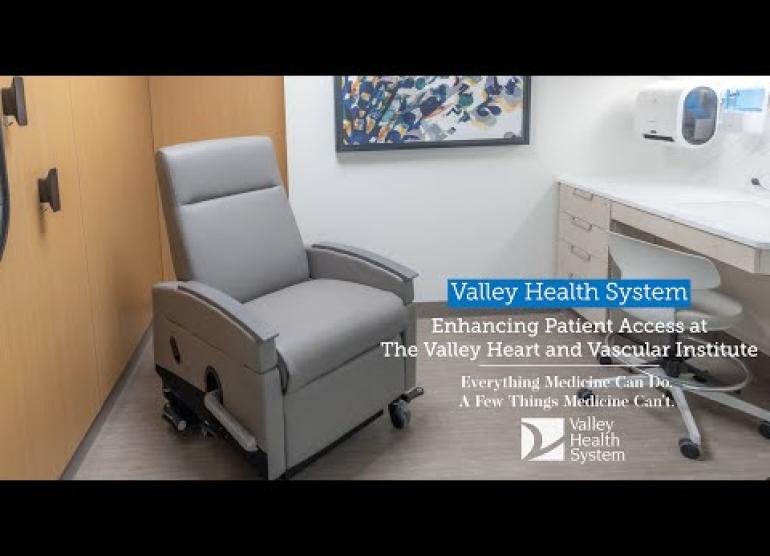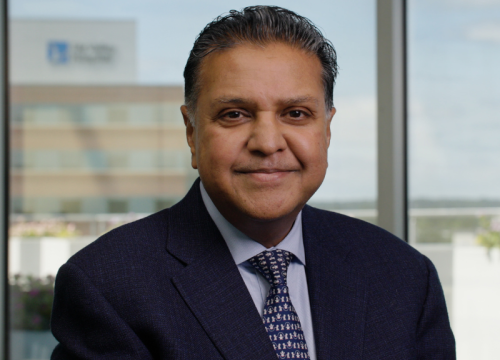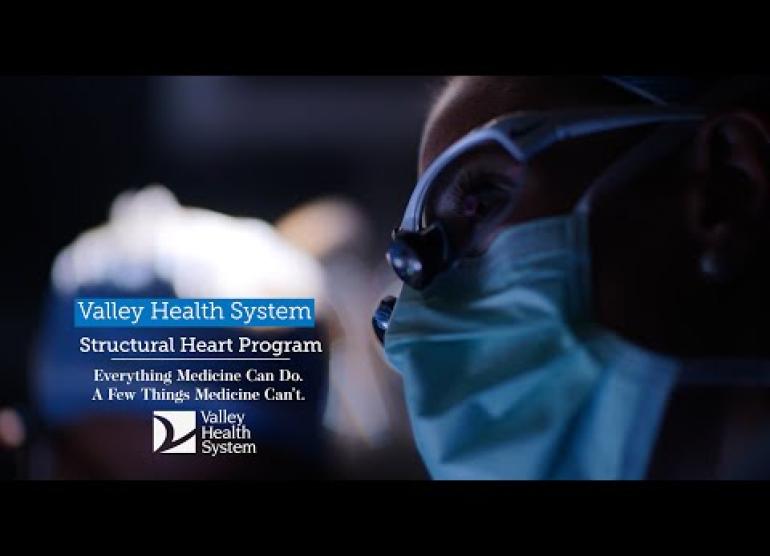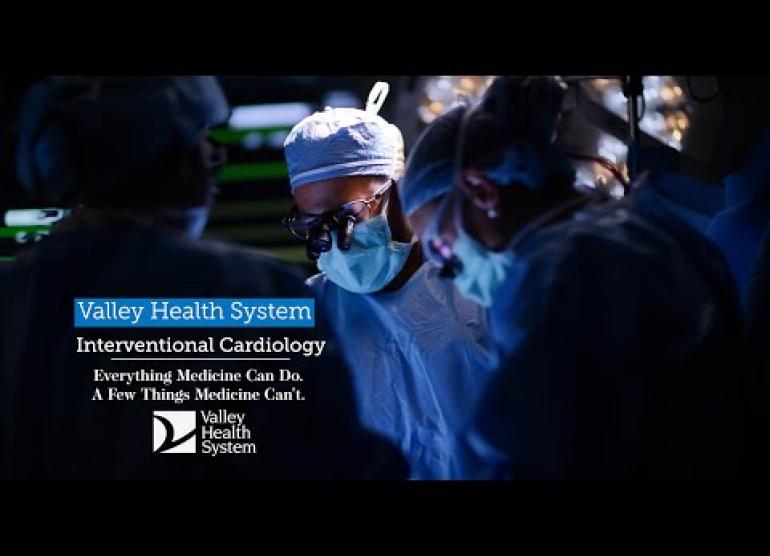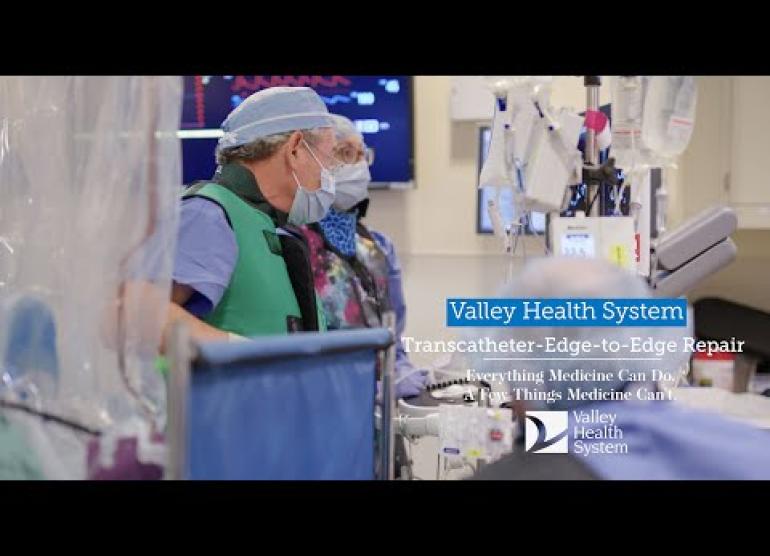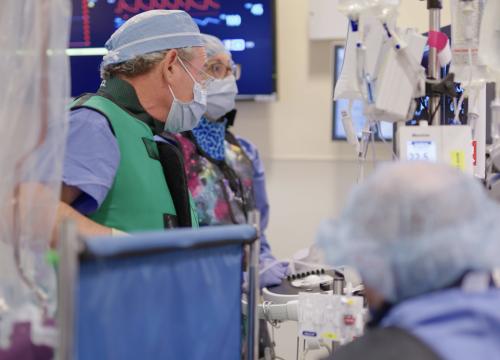New at Valley: LVAD Therapy Program
Valley's Left Ventricular Assist Device (LVAD) Therapy Program offers advanced treatment for patients suffering from congestive heart failure.
Learn More
Heart failure is a serious condition that impacts more than 5 million Americans. If you’re one of the many people living with this chronic illness, your heart’s capacity to perform the critical function of maintaining adequate blood flow in the body is compromised.
Heart Failure Symptoms
You may have symptoms such as:
- Shortness of breath at rest or with activity
- Fatigue
- Inability to sleep lying down due to a drowning sensation
- Difficulty in performing routine activities
- Swelling of the lower extremities
Valley’s heart failure team specializes in helping people with heart failure maintain a good quality of life and live longer.
Our comprehensive heart failure program includes:
- A dedicated heart failure clinic for urgent visits
- Care and monitoring after you’ve been hospitalized
- Mobile health services if you can’t make it into the clinic
- Cutting-edge treatments, including devices and medications
- Access to clinical trials looking at novel treatments for heart failure
The Valley Approach to Heart Failure Care
At Valley, we’re dedicated to relieving your heart failure symptoms and avoiding hospitalization. Most importantly, we’ll help you recognize that heart failure doesn’t have to be the end of your story.
Through The Knispel Center for Comprehensive Cardiomyopathy Care, our collaborative team of cardiologists, advanced practice providers, nurses, and specialists offers integrated care for patients with heart failure, pulmonary arterial hypertension, and hypertrophic cardiomyopathy.
We’ll provide you with the care, education and support you need to live your best, longest life with heart failure. We do this by:
- Offering you the latest treatment options to address your symptoms
- Managing your medications and adjusting them based on your specific needs
- Empowering you to understand warning signs and changing symptoms
Watch: Valley’s heart failure team offers advanced care and support to help you become your healthiest self. Meet our director, Kariann Abbate, MD, and the heart failure nursing team.
What to Expect at Valley
At your first appointment, we’ll spend time getting to know you, considering your options and answering your questions. We’ll discuss your:
- Overall health and abilities
- Heart failure symptoms, like shortness of breath, fatigue and swelling
- Quality of life
- Treatment goals and preferences
A Heart Failure Care Plan Tailored to You
Your care team will then customize a care plan that works for you. This may include:
- Lifestyle changes: Our heart failure nurses work closely with you to help you adopt healthy habits for your heart. This includes nutrition support and guidance on how to safely increase your physical activity.
- Cardiac rehabilitation: This specifically designed program includes medically supervised exercise, nutrition counseling and education. Participating in cardiac rehab also gives you the tools you need to lead a heart healthy life, long-term.
- Medication management: We use the newest, safest and most effective medicines to treat heart failure. At every visit, we’ll assess your condition and progress, and adjust your medicines as needed. We make sure you’re taking the right medicines, with the right doses, at the right time.
- Infusions: We provide certain heart failure medications intravenously (IV) to help address fluid buildup, a common effect of heart failure. Valley is one of few places you can get these IV infusions without staying overnight at the hospital.
- Heart failure devices: Our heart failure team was among the first to bring heart failure devices to the area. We offer CardioMEMS to track the pressure in your heart and lungs remotely. We also offer the latest implantable devices to help your heart work better, including:
Why Choose Valley for Heart Failure Care?
- A team dedicated to you: At Valley, you’ll get team-based care from cardiologists, electrophysiologists, heart surgeons, interventional cardiologists, heart failure nurses, and others.
- Clinical trials and treatments you can’t find everywhere: Valley is involved in promising heart failure clinical trials and research. We’re looking at new, more effective ways to diagnose and treat conditions that cause heart failure. This means you may have access to life-changing therapies not yet widely available.
- Expertise in diagnosing heart failure: Many patients come to us after a long diagnostic journey still without answers. Our team’s expertise combined with the latest cardiac imaging technology and procedures allow us to make the right diagnosis quickly.
- Access to the latest heart procedures: Heart surgery and interventional cardiology procedures may treat certain symptoms or conditions that cause heart failure. We use innovative, minimally invasive methods to repair or replace heart valves, bypass blocked arteries, and fix heart defects.
- Here for you at every step: Most people with heart failure won’t need ventricular assist devices or a heart transplant. But Valley can help facilitate these therapies when necessary. We’ll connect you with qualified specialists and work closely with them throughout the process. We provide ongoing follow-up care after surgery.


